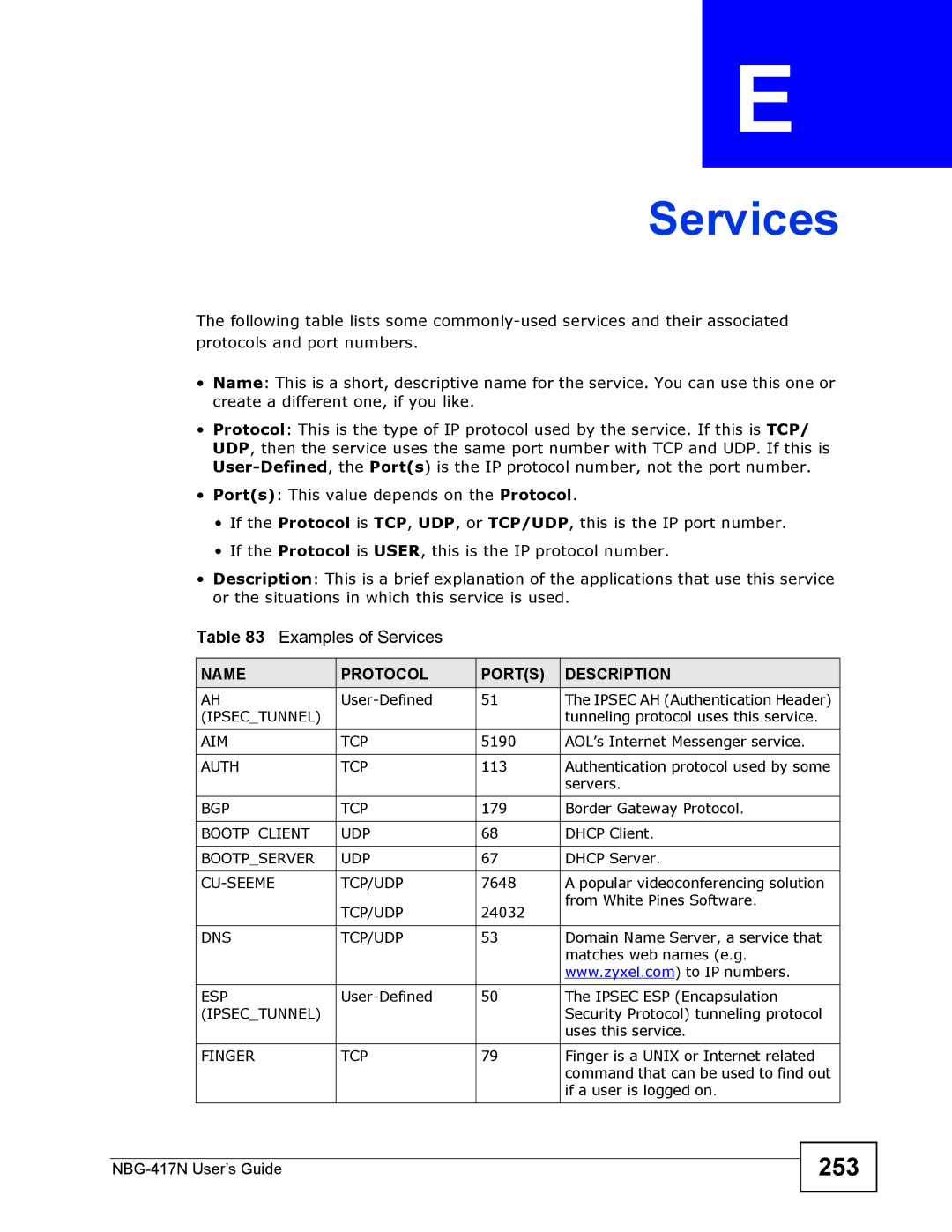
E
Services
The following table lists some
•Name: This is a short, descriptive name for the service. You can use this one or create a different one, if you like.
•Protocol: This is the type of IP protocol used by the service. If this is TCP/ UDP, then the service uses the same port number with TCP and UDP. If this is
•Port(s): This value depends on the Protocol.
•If the Protocol is TCP, UDP, or TCP/UDP, this is the IP port number.
•If the Protocol is USER, this is the IP protocol number.
•Description: This is a brief explanation of the applications that use this service or the situations in which this service is used.
Table 83 Examples of Services
NAME | PROTOCOL | PORT(S) | DESCRIPTION |
AH | 51 | The IPSEC AH (Authentication Header) | |
(IPSEC_TUNNEL) |
|
| tunneling protocol uses this service. |
|
|
|
|
AIM | TCP | 5190 | AOL’s Internet Messenger service. |
|
|
|
|
AUTH | TCP | 113 | Authentication protocol used by some |
|
|
| servers. |
|
|
|
|
BGP | TCP | 179 | Border Gateway Protocol. |
|
|
|
|
BOOTP_CLIENT | UDP | 68 | DHCP Client. |
|
|
|
|
BOOTP_SERVER | UDP | 67 | DHCP Server. |
|
|
|
|
TCP/UDP | 7648 | A popular videoconferencing solution | |
| TCP/UDP | 24032 | from White Pines Software. |
|
| ||
|
|
|
|
DNS | TCP/UDP | 53 | Domain Name Server, a service that |
|
|
| matches web names (e.g. |
|
|
| www.zyxel.com) to IP numbers. |
|
|
|
|
ESP | 50 | The IPSEC ESP (Encapsulation | |
(IPSEC_TUNNEL) |
|
| Security Protocol) tunneling protocol |
|
|
| uses this service. |
|
|
|
|
FINGER | TCP | 79 | Finger is a UNIX or Internet related |
|
|
| command that can be used to find out |
|
|
| if a user is logged on. |
|
|
|
|
